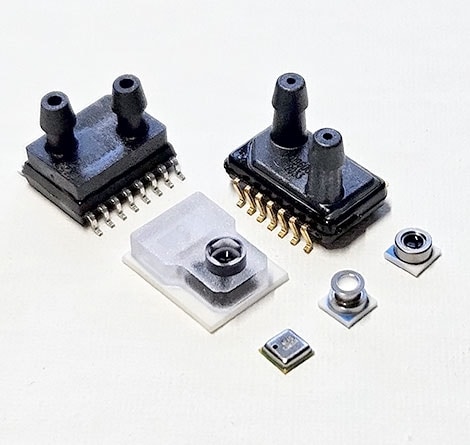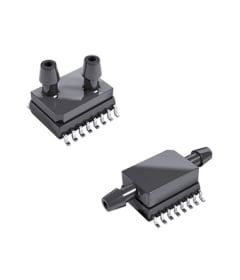Watch as engineers from TE, Avnet, and Microchip reveal a cutting-edge HVAC air flow demonstration system to demonstrate their ground-breaking collaboration. Real-time remote monitoring and cloud-based control are made possible thanks to this ground-breaking technology's smooth connections. Witness how the power to transform data into actionable insights has changed the IoT landscape. Don't miss out on this exciting demonstration video that showcases the future of connected technology.

Board Mount Pressure Sensors
A board mount pressure sensor is typically mounted on a printed circuit board (PCB) and used to measure the pressure of gases or liquids. At TE Connectivity, we offer PCB mountable pressure sensors that are used in a wide range of applications from disposable medical sensors for medical equipment, to industrial pressure sensors for condition monitoring and HVAC equipment. Our sensors can be optimized for your design requirements.
Product Features:
- Small size and low weight
- mV, amplified analog, or digital outputs
- Digital I²C and SPI formats supported
- Supply voltages from 1.5 to 5.0 VDC
- Uncompensated or compensated
- MEMS-based sense element
- Through-hole or surface mount
- Ideal for dry, non-corrosive gasses
- Gel-coated versions for harsh environments
- Various configurations available with temperature outputs
This selection guide can help you to choose the best solution for your application from our broad selection of digital and analog PCB mountable pressure sensors, available in both through-hole and surface mount configurations.
Applications
- Pneumatic control systems
- Environmental monitoring
- Altimeter
- Barometer
- Fitness equipment
- Vacuum switch
- Leak detection
Join an interesting discussion on the cutting-edge field of HVAC system airflow monitoring, conducted by engineers from TE, Avnet, Microsoft Azure, and Microchip. Gain useful knowledge and participate in the discussion that examines the most recent developments in this important area. Don't miss your chance to view this engaging discussion, which is sure to produce ground-breaking approaches to monitoring and optimizing airflow.


